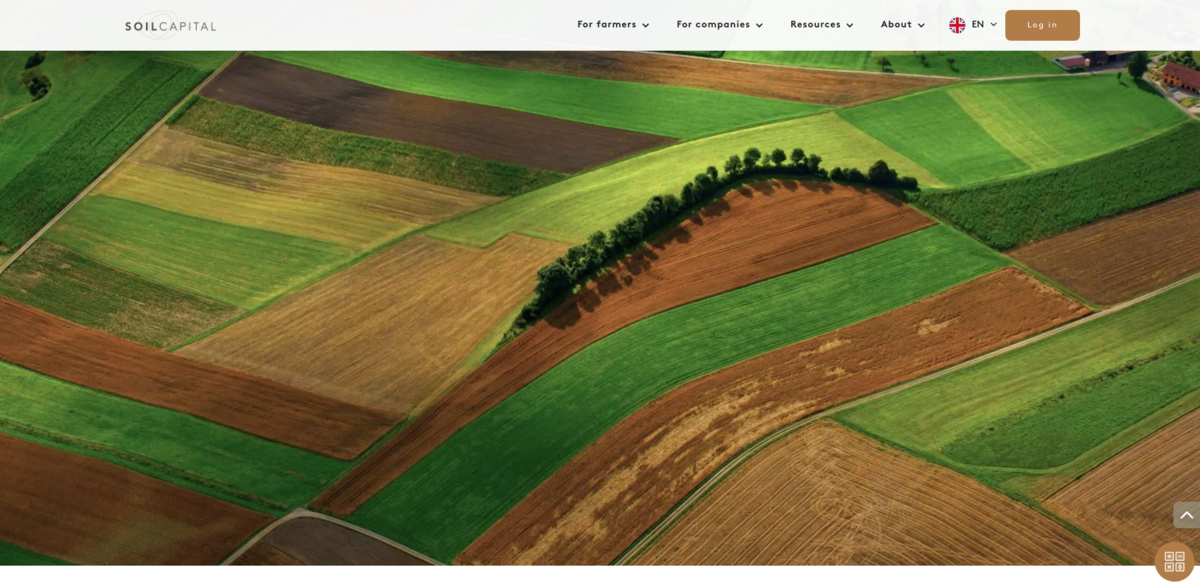What the Project Is
Regenerative agriculture for food system resilience & climate action fixes the planet by capturing more carbon than it emits while promoting biodiversity, water retention, and overall ecosystem health. This project, which started as an agronomy firm and has now evolved into a holistic regenerative programme, is the first certified agricultural carbon payment programme in Europe. It rewards farmers who not only produce food but also improve soil health and support climate action. The initiative supports farmers in France, Belgium, and the United Kingdom by providing a platform that quantifies, certifies, and monetises their greenhouse gas emission reductions and carbon sequestration in the soil.
Main Benefit
The primary benefit of the programme is its ability to bring together robust environmental measurement with real financial rewards for farmers. Key figures and facts include:
- Over 1,800 farmers already joined the programme
- Soil Capital in the UK: 274 participating farmers, 110,000 ha covered, and 2,635,000 € paid to farmers
- Soil Capital in Belgium: 183 participating farmers, 26,500 ha covered, and 561,000 € paid to farmers
- Soil Capital in France: 1,413 participating farmers, 366,666 ha covered, and 10,404,000 € paid to farmers
How Does It Work?
The programme operates on a structured yet dynamic system that relies on regular assessments and clear certification standards. A yearly assessment measures farms’ environmental indicators and the adoption of regenerative practices, while agronomic support is provided to help farmers improve their soil health. The rewards process quantifies and certifies improvement by using multiple indicators—especially carbon measurement, where 1 Soil Capital Unit equals 1T CO2e reduced or removed. Companies, by investing in these processes, strengthen their supply chain resilience and reduce their scope 3 emissions, meeting international standards such as those set by SBTi… It’s a process that combines smart technology with proven farming practices, enabling a natural and measurable impact.
Supporting Farmers and Companies
The programme puts a spotlight on both the farmers and the companies involved. Farmers can register by choosing “I AM A FARMER” and join the Rewards programme, which pays them for improving their climate impact. Meanwhile, companies looking to invest in supply chain resilience and contribute to global net zero can explore dedicated offers by selecting “I AM A COMPANY.” This dual approach not only encourages better sustainable practices on the ground but also helps build a resilient and future-proof food system that benefits all parties involved.
Expertise and Innovation in Agriculture
At the heart of the project lies deep agricultural expertise and innovative use of technology. As agronomists, the team provides practical, hands-on support to help farmers transition toward more sustainable practices like agroecology and regenerative agriculture. The programme, which launched in September 2020 as the first ISO certified carbon payment programme in France, Belgium, and the UK, uses a sophisticated software to empower farmers. This software allows them to calculate, certify, and monetise their reductions in greenhouse gas emissions while sequestering carbon in the soil. Partnerships with industry leaders like PepsiCo highlight the cutting-edge nature of this project and its commitment to mainstreaming regenerative agriculture within the decade.
Scaling Impact Through Partnerships
The collaboration between major companies and this initiative demonstrates its growing influence. With buyers of carbon certificates such as Anheuser-Busch InBev, Cargill, and L’Oréal Paris already involved, the programme showcases a strong model for integrating private sector investment with sustainable agriculture. These industry partnerships not only recognize the critical role of farmers in healing the planet but also offer them rightful recognition in the global fight against climate change. This synergy between agriculture, AgTech, ClimateTech, and SaaS reinforces the idea that supporting farmer livelihoods is key to securing food systems and our environment.
Project Impact
- SDG 2: Zero Hunger – by producing abundant and healthy food
- SDG 12: Responsible Consumption and Production – through sustainable farming practices
- SDG 13: Climate Action – by sequestering carbon and reducing greenhouse gas emissions
- SDG 15: Life on Land – by promoting biodiversity and restoring soil health
- SDG 17: Partnerships for the Goals – via collaborations with major food and beverage companies
Future Outlook and Global Influence
The outlook for regenerative agriculture as championed by this project remains decidedly positive… There is an ongoing effort to open the programme to 1,000 farmers following an initial registration of 150 farmers in the first season. The initiative’s goal is to mainstream regenerative agriculture practices within the decade. With a platform that seamlessly integrates environmental certification with financial rewards, the project continues to push boundaries in both the AgTech and ClimateTech arenas. It not only offers a solution to climate change by reducing scope 3 emissions and capturing carbon but also ensures that farmers receive the financial recognition they deserve. This dynamic model is set to redefine sustainable farming practices, shaping the future of global food security and climate action in a truly transformative way.






















